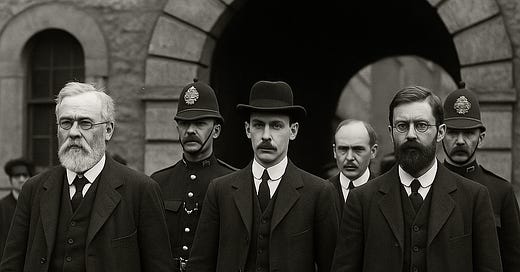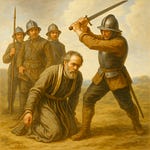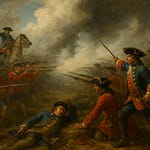For More Events on This Day in Irish History - https://thisdayirishhistory.com/may-17/
Welcome back to This Day in Irish History. I'm your host, Raymond Welsh. Before we dive into today's story, if you’d like to explore other significant events that happened on this day in Irish history, visit thisdayirishhistory.com—the link is in the episode description. Now, let’s journey back May 17, 1917, when British authorities arrested several Sinn Féin leaders in what became infamously known as the "German Plot." Though the allegations lacked substance, the consequences would ripple through Ireland's political landscape, fueling the flames of nationalism and altering the course of Irish history.
To understand the context of the so-called German Plot, we must look at the turbulent years leading up to 1917. The Easter Rising of 1916 had sent shockwaves through both Ireland and Britain. Though the rebellion was initially met with public ambivalence or even hostility, the British government's heavy-handed response—executing its leaders and imposing martial law—sparked a dramatic shift in Irish sentiment. Sinn Féin, though not actually responsible for the Rising, was incorrectly associated with it in the public mind. Capitalizing on this perception, Sinn Féin embraced a republican platform and soon became the standard-bearer for Irish independence.
Meanwhile, World War I raged on in Europe, and Britain was increasingly desperate for soldiers. In Ireland, the specter of conscription loomed large. Though it hadn’t yet been enforced, rumors and fears about compulsory enlistment were widespread. British authorities, keen to weaken rising nationalist fervor and possibly preempt another rebellion, seized upon an idea: portray Irish republicans as traitors in league with the enemy.
On May 17, 1917, under the flimsy pretense of a conspiracy with Imperial Germany, British forces arrested dozens of prominent Sinn Féin figures, including Arthur Griffith, Eoin MacNeill, and others. The government claimed it had uncovered a German plot to assist Sinn Féin in launching a fresh uprising. Yet no credible evidence was ever presented. The supposed plot was largely based on hearsay, intercepted telegrams of dubious authenticity, and a pervasive paranoia within British intelligence circles.
The arrests were not only a gross miscarriage of justice but also a strategic misstep. Far from quelling Irish nationalist sentiment, the crackdown had the opposite effect. The Irish public, already skeptical of British intentions, saw the arrests as a blatant attempt to suppress legitimate political dissent. Sympathy for Sinn Féin surged, and the party's transformation from a marginal political group into a powerful revolutionary force was accelerated by this act of repression.
Indeed, the timing of the arrests was particularly significant. In June 1917, just weeks after the crackdown, Eamon de Valera—newly released from prison for his role in the Easter Rising—won a by-election in East Clare by a landslide, running as a Sinn Féin candidate. This victory was one of several that signaled Sinn Féin’s meteoric rise. By the end of 1918, the party would sweep the general election, winning 73 out of 105 Irish seats and establishing the revolutionary First Dáil in 1919.
Historians now widely agree that the German Plot was more of a pretext than a genuine security concern. It allowed the British government to detain nationalist leaders without trial under the Defence of the Realm Act. But in trying to suppress a potential threat, the authorities helped give birth to a far greater one. The arrests effectively turned Sinn Féin from a political curiosity into the dominant voice of Irish resistance.
In the end, the German Plot was a phantom menace. No arms shipments, no correspondence, no credible plans linking Sinn Féin to Berlin ever surfaced. Yet its legacy is very real. It helped solidify the alignment between Irish nationalism and Sinn Féin and set the stage for the War of Independence just two years later.
Thank you for joining me on this journey through Ireland’s rich past. Please like and subscribe, and until next time, I’m Raymond Welsh—Slán go fóill!












Share this post